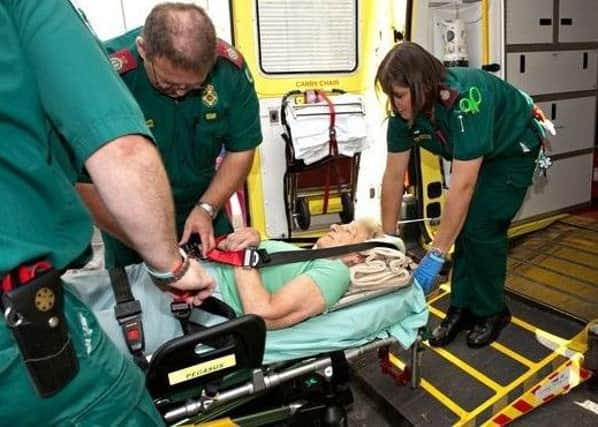O'Neill under fire over A&E wait time crisis


The shocking figures were more than treble the number during the same period in 2015.
No patient attending an emergency department should wait longer than 12 hours, according to Ministerial targets.
Advertisement
Hide AdAdvertisement
Hide AdBut the Department of Health’s latest statistics show that last month, 887 patients waited longer than this to be either treated and discharged or admitted.
The department said there had been a 5.7% increase in attendances last month. A total of 62,094 people attended emergency departments in December, an increase of 3,360 from the previous year.
The statistics also show that in December only 65.4% of patients were treated and discharged or admitted within four hours, 5.4% less than the same period in 2015. The target is 95%.
Over one in six (17.7%) patients in December had been referred by a GP.
Advertisement
Hide AdAdvertisement
Hide AdThe UUP’s Jo-Anne Dobson said Ms O’Neill “should be ashamed of herself”.
The Assembly election candidate said: “By presiding over a deepening crisis in our health service, she has effectively abdicated the responsibilities she had as health minister to patients.
“The crisis in our local health service is wholly unprecedented. Never before in the history of the NHS have so many people been waiting so long to receive a diagnosis or treatment.
“Every single aspect of the local health service is under pressure, from the provision of domiciliary care places right up to the outrageous delays that too many patients are experiencing in receiving treatment for life-threatening illnesses.”
Advertisement
Hide AdAdvertisement
Hide AdA comprehensive plan was due to be published by the health minister this month to tackle the waiting list crisis, but with no agreed budget and a collapsed Assembly no action has been taken.
Ms Dobson said: “The latest publication of hospital waiting times illustrates that the people who will continue to be most affected by the RHI scandal, and the subsequent failure to get our public finances in order, are tragically also those who need our public services - such as the NHS - the most.”